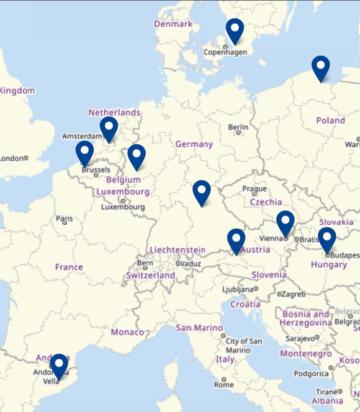Help us make the FRA website better for you!
Take part in a one-to-one session and help us improve the FRA website. It will take about 30 minutes of your time.

EU Charter of Fundamental Rights
Artikel 54 - Verbot des Missbrauchs der Rechte
Keine Bestimmung dieser Charta ist so auszulegen, als begründe sie das Recht, eine Tätigkeit auszuüben oder eine Handlung vorzunehmen, die darauf abzielt, die in der Charta anerkannten Rechte und Freiheiten abzuschaffen oder sie stärker einzuschränken, als dies in der Charta vorgesehen ist..



